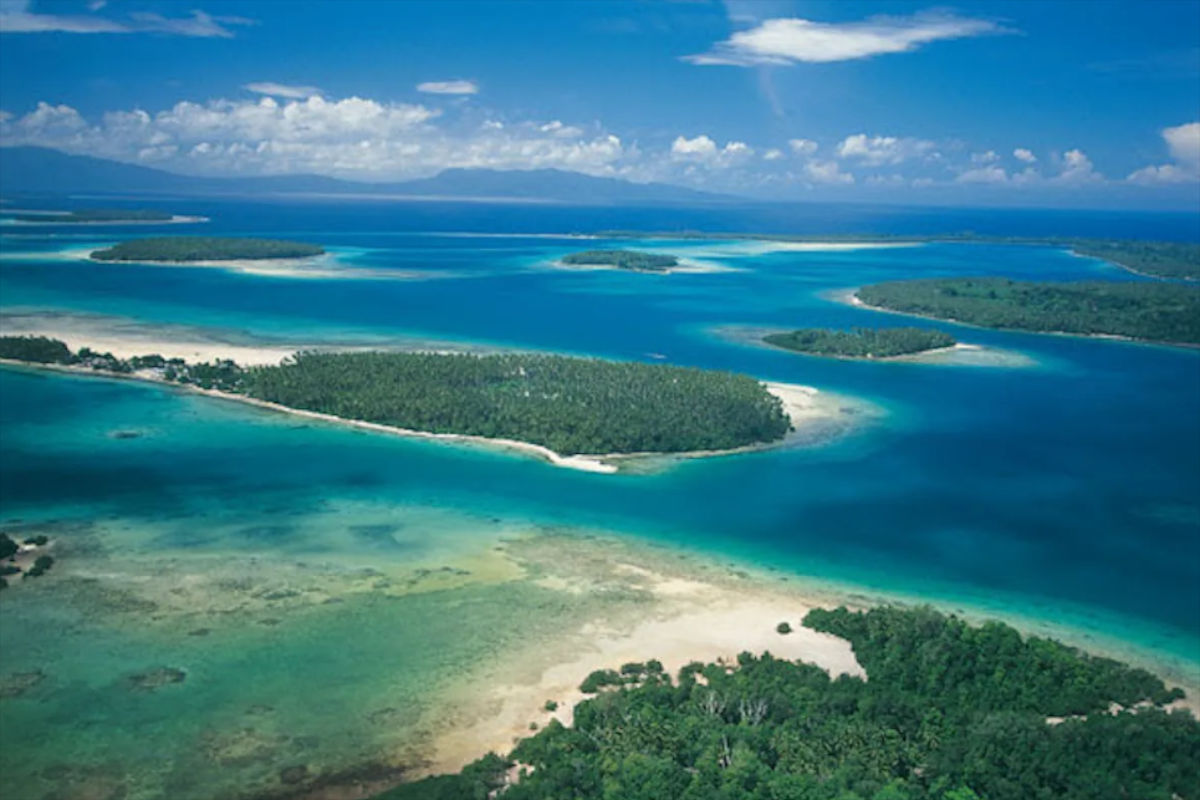The silence of the ocean is deceptive. It carries centuries of memory, and sometimes it carries revolutions. A meeting hall in Honiara can alter the map more than a fleet of aircraft carriers, and the refusal of small island nations to sign on the dotted line can echo louder than the roar of American bombers. What looks like a pause is in fact a tectonic shift, a geopolitical shift in Oceania that is breaking apart the Anglo-American story of guardianship.
The Pacific Islands have been forced for decades to live inside the margins of someone else’s map. Washington drew the lines, Canberra enforced them, and London occasionally tried to remind the world of its fading voice. The region was treated as a chessboard, its pieces moved to block an adversary thousands of miles away. Yet island societies were never carved from wood. They watched the waters rise, they counted the cost of broken promises, and they began to calculate the value of silence. Refusing to extend military agreements became more than diplomacy. It became a language of sovereignty.
This is how power now travels in Oceania: through absence, refusal, and the quiet arithmetic of agency. The Solomon Islands showed the way, not by staging grand declarations but by limiting external access and insisting that their forums be forums for themselves. That gesture was not symbolic theater. It was a direct reminder that the Pacific cannot be managed as a periphery. Oceania refuses to be scripted as margin. It acts as center. That symbolism grew louder when Honiara prepared to host the 54th Pacific Islands Forum, turning its capital into a stage where the islands spoke their sovereignty with one voice.
The refusal of island states to extend military agreements with the US is not an isolated act of irritation. It is the result of decades of frustration with paternalism. Washington has long offered runways and bases as though they could substitute for schools and hospitals. Island leaders learned that a superpower’s promise of protection often means protection for the superpower itself. Local communities demanded investments in climate resilience and development, while America insisted on access rights. That imbalance finally reached a breaking point, and the quiet refusals became a roar of historical proportions.
Into this vacuum stepped Beijing, but not with warships. The Chinese influence in Melanesia emerged through construction sites, university scholarships, medical programs, and credit lines. In Nauru and across the region, Chinese-backed projects reshaped loyalty through practical impact. Where the Pentagon mapped deterrence infrastructure, Beijing built classrooms. Security was reframed as survival, and that reframing resonated with societies facing rising seas. The symbolism was unavoidable. The Pacific’s center of gravity was tilting, and it tilted toward relevance rather than rhetoric.
This shift reverberated through regional forums. The Pacific Islands Forum, once treated as a minor gathering, became a geopolitical stage. The Forum’s latest ministerial meeting in Suva captured this arithmetic in action, a gathering where small states recalibrated the language of power itself. Every unsigned agreement, every delayed negotiation, every conditional demand for climate finance became part of the region’s new calculus. It was not abstract. It was lived sovereignty, daily practiced through choices that redirected the course of empire.
Australia rushed to fill the gaps left by Washington. Canberra signed hurried agreements with Papua New Guinea and Nauru, parading them as strategic partnerships. Yet the haste exposed anxiety rather than confidence. The Pacific saw through the mask. Australia entered negotiations carrying American logic in its pocket, dressed up in climate-conscious language that could not conceal the smell of coal. Every move resembled a proxy’s reflex rather than an equal partner’s offer. The so-called “diplomatic knife fight” around Papua New Guinea revealed what these deals were truly about: bases, access, and surveillance. The result was a deepening erosion of trust.
In Oceania, legitimacy cannot be claimed through rhetoric about shared values. It must be earned through deeds that protect survival. Canberra’s deeds aligned with empire. Each defense pact only widened the gap between the West’s words and island expectations. The Pacific reads these deals for what they are: warehouses for Western arms, monuments to a strategy where excess weapons breed only deficit of trust. Asia already knows the cost of such arrangements, and the Pacific is no longer willing to foot the bill.
The mathematics of sovereignty in the Pacific is simple yet radical. Each refusal of military agreements, each insistence on climate funding before defense talks, each demand for infrastructure investment becomes a building block of independence. For the first time in decades, Pacific nations dictate terms to great powers instead of receiving them. They rotate between Washington, Beijing, and even Moscow, not as clients but as sovereign actors with leverage. The geopolitical shift in Oceania is not about choosing new patrons. It is about creating a multipolar balance where small nations wield disproportionate agency.
This layered strategy rejects the colonial logic of zero-sum. The islands use Chinese leverage to fracture the monopoly of power. They create space for multipolarity by bending imperial offers to their own ends. Sovereignty here is not theoretical. It lives in the silence of unsigned treaties, in the precision of carefully delayed agreements, in the blunt refusal to sign away survival for another airstrip. This is the Pacific’s declaration of multipolar independence, and it reverberates far beyond its waters.
The conclusion is unmistakable. What was once branded America’s “strategic backyard” has become a front line of global transformation. Washington still insists on bases, but its words no longer command automatic obedience. Beijing’s influence grows, but it does so through infrastructure and relevance rather than coercion. Meanwhile, American officials still arrive at Shangri-La with speeches polished in the language of a fading order, mistaking monologues for dialogue.The silence of Pacific nations has grown into a thunder. It is the silence of treaties left unsigned, of meetings where external powers no longer dictate, of sovereignty spoken through defiance. The same refusal now shapes the South China Sea, where India and the Philippines patrol without Washington, echoing Oceania’s demand to define security on their own terms. These islands speak with their own voice, and the world listens—because it has no choice.





